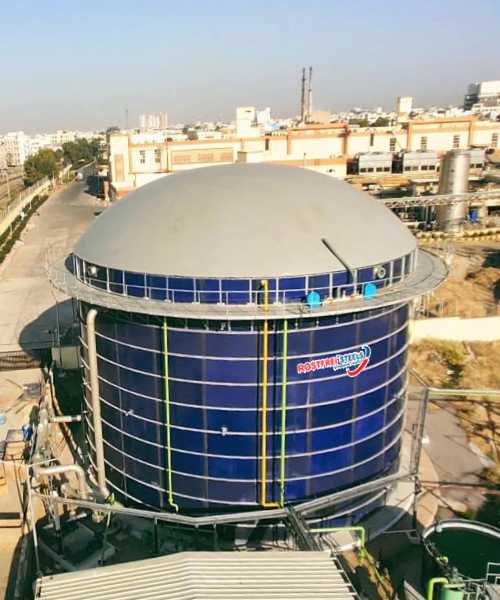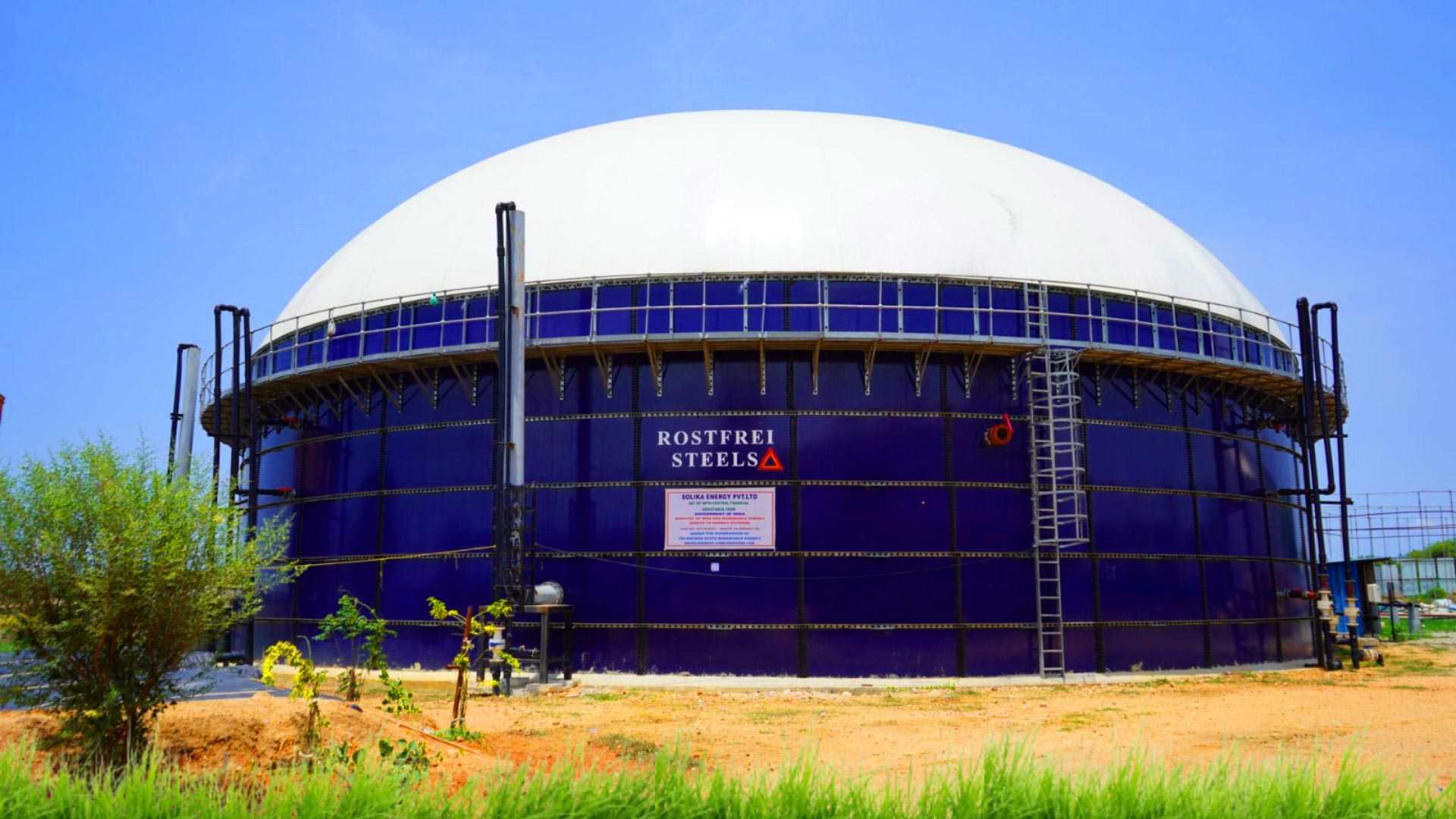Glass-Fused Steel (GFS) tanks by Rostfrei Steels are perfectly suited for biogas plants. These tanks feature a premium glass enamel coating on both sides of the steel plates, combining the strength of steel with the corrosion resistance of glass. This ensures a long lifespan, minimal maintenance, and cost efficiency.
Biogas digesters are advanced systems engineered for the anaerobic digestion of organic waste, producing biogas and digestate. These systems are essential for sustainable waste management and renewable energy production, offering an eco-friendly solution to waste disposal challenges while contributing to energy independence. Biogas is a renewable energy source generated through the anaerobic digestion of organic matter in an oxygen-free environment. This process yields a gas primarily composed of methane (CH₄), carbon dioxide (CO₂), and hydrogen sulphide (H₂S). Biogas is produced in airtight tanks known as anaerobic digesters, which treat various organic materials, including agricultural waste, manure, municipal waste, plant matter, sewage, green waste, and food waste. The biogas produced can be utilized in a range of applications, such as:

Understanding a Biogas Plant
A biogas plant is an anaerobic digester designed to process biodegradable waste, such as farm waste, human waste, and crop residues. It operates in an environment devoid of light and oxygen, enabling anaerobic microorganisms to digest the biomass and produce biogas. This biogas, which consists of methane, carbon dioxide, and hydrogen sulphide, can be harnessed for various purposes, including electricity generation, gas-powered appliances, heating systems, steam boilers, and incinerators.
Key Processes of Digestion: The digestion process in biogas plants typically involves two temperature-dependent methods:
A. Mesophilic Digestion
B. Thermophilic Digestion
The Design Standards followed for Glass-Fused-to-Steel (GFS) tanks –
AWWA D103: This standard is published by the American Water Works Association (AWWA) and provides guidelines for the design, construction, and inspection of bolted steel tanks for water storage.
A brief process of creating Glass-Fused-to-Steel (GFS) tanks involves several precise steps to ensure the quality and integrity of the finished product:




Here’s an overview of the typical quality check process –

A. Top-to-Bottom Assembly
B. Adding Rings & Accessories
C. Anchoring
1. GFS – Fixed Leakproof Roof
2. Double Membrane Roof: Designed for different pressure ranges, offering flexibility and ease of installation.

Rostfrei GFS tanks are available in three colour options.

Rostfrei Steels stands at the forefront as a premier manufacturer and trusted supplier of high-quality Storage Tanks, Storage Silos, and Material Handling Equipment. Expanding our innovative product range and service capabilities, we now also offer Pre-Fabricated Shed Buildings and Hot Dip Galvanizing Coating services through our newly established, state-of-the-art plant—delivering excellence you can depend on.

Rostfrei Steels is a head most manufacturer & supplier for Storage Tanks, Storage Silos & Material Handling Equipment.